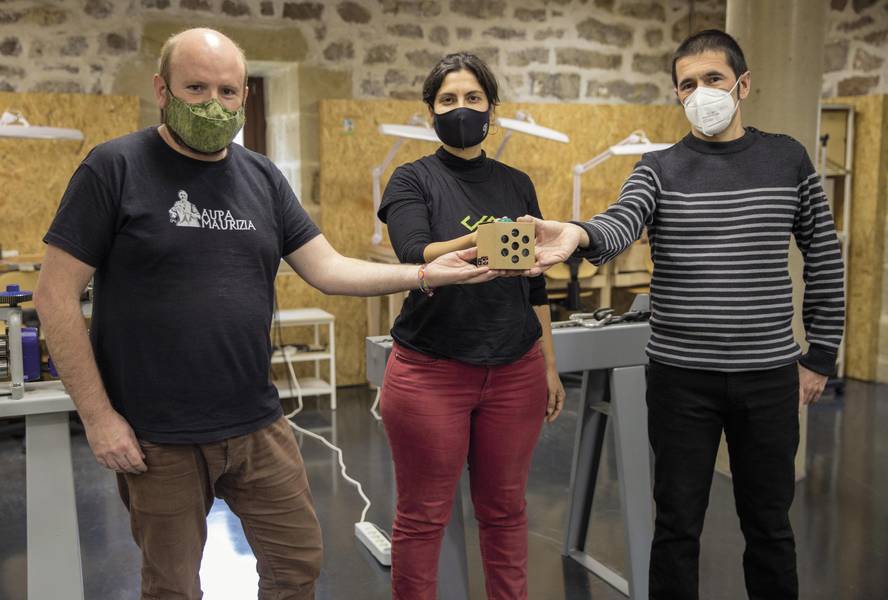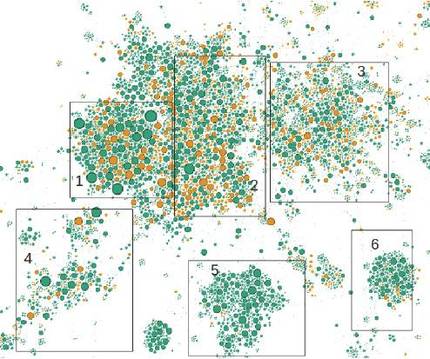Artificial Intelligence and Gender Equality: The Road We Are Breaking

The wave of artificial intelligence is reaching the entire social sphere and, despite being a set of technologies essential to accelerate digital transformation, can be a dual sword. We are convinced that, in a proper direction, the structural problems and cracks at the center of our society have a great potential to remedy them, but at the same time, the risks to further increase inequalities and stereotypes are not few, for example between women and men.
The report published by UNESCO in 2020 [1] clearly highlights the challenges, threats and opportunities in artificial intelligence and equality between women and men. In Elhuyar we work both areas of work and for years we began to unite both lines. There is still much to be done, but we are already making a way.
Mining texts to measure the presence of women
On this path, for example, we have used techniques related to text mining in various media (Saralegi, 2019) [2], and we have launched projects with Observatory, Berria and Emakunde to quantify and measure the presence of women in texts published in media using artificial intelligence techniques. Looking ahead, we also want to take steps to measure the qualitative presence of women and men. Among other things, we intend to work techniques to identify roles assigned to women and men, such as the expert, simple citizenship, authority or victim.
In the GEPSA project (Smart Tool based on the Semantic Analysis of the Press for the Response to Social Challenges and the Design of Efficient Policies) that we have in place, we aim to analyze the digital narratives related to gender equality in digital media and social networks, in order to improve public policies.
Avoiding sexist language
In general, it seems that thanks to artificial intelligence we can overcome a series of challenges. And it also seems simple: How simple it is to translate a text automatically with the mobile, besides the translation is understood! With this kind of tools it seems that the wheel has been reinvented, but it is not so: social and technological transformation is changing the language.
In a few months there has been the boom of the neuronal translator; the tool that we did not want to use before has become our daily working tool, and today it is perfectly developed in Basque. The tool is undoubtedly perfect and the technological advance has been enormous, but we cannot forget that neural translators are tools learned from gigantic masses of text, that is, they learn from what is in the texts written above.
The development of technology is fast, let's not say about society and our way of communicating. Neural translators have many texts of years ago in their neurons, hence new translations. This brings to the form of writing of yesteryear to the current media, and should not be linguistic to see that it generates problems related to gender stereotypes and generic masculine, specifically in languages with marked gender. It is common, for example, in texts related to professions, to translate from Basque into Spanish, to translate doctors as men and nurses as women; in most cases, computer scientists and engineers also consider translators as men.

In Elhuyar we have already begun to analyze how to influence those texts that are created automatically, for example, in the text used to learn if there are gender stereotypes. The key is that these technologies also take care of these aspects to influence the language of the future. The responsibility is shared: we have to prepare our own technology to move away from gender inequality and the user must be attentive to the critical reading of the automatically generated text and the necessary adaptations.
Language resources and writing support tools
The care of writing is in the hands of each of them, so we have to offer means and tools for it, and in it Elhuyar works for many years. As an example, the Elhuyar dictionaries website (https://hiztegiak.elhuyar.eus) has worked to avoid the discriminatory lexicon and sexism of dictionary examples, including those related to stereotyped professional or sports activities. For example, we have modified the example of the entry in Spanish «pilot»: the pilot waited for the orders of the captain: the pilot was waiting for the orders of the captain.
With spelling and grammar checker Xuxen (https://xuxen.eus) we have done similar work, detecting stereotyped professions and inappropriate structures from the gender point of view, and proposing alternatives. For example, if we use the word "legislator", the latest version of Xuxen will indicate that it may be inadequate, since if we speak of a male jurist it may be appropriate, but if not, we prefer to use the word "jurist".
Following the resources we offer to society, is the recently published Dictionary Feminism and Equality, a project in which Elhuyar has participated, among other things, with the aim of promoting equality between women and men and unifying terminology in this area.
The path we have begun to make in speech technologies: neutral voices
In speech synthesis we also work with neural networks. And one of the important lines we are working on is to escape the binary voice scheme. We want to develop neutral speech systems to avoid stereotypes that can generate voices of women and men. For example, we will use these voices in smart speakers and other devices that use speech synthesis. Saniye Gülser Corat, UNESCO Director of Gender Equality, spoke clearly in an interview [3]: “Siri and Alex should have no gender.” To develop the intelligent speaker in Basque (Mycrof.EUS) that Elhuyar is running, we will try to use neutral and/or non-stereotyped voices.
There are few challenges that we have in hand and that we must work together with the development of artificial intelligence. On this path we have already taken the first steps and will continue working in Elhuyar to harness the potential of artificial intelligence and achieve a more egalitarian society.





